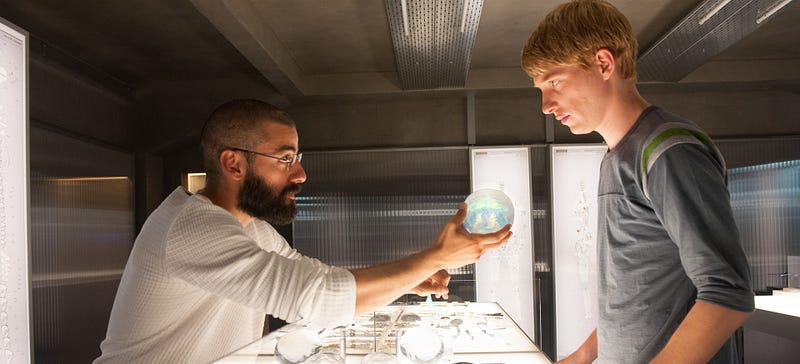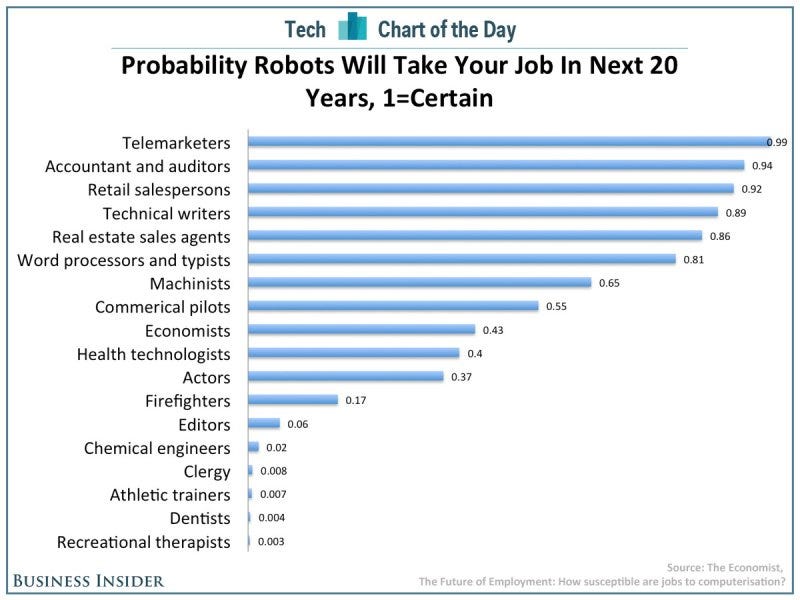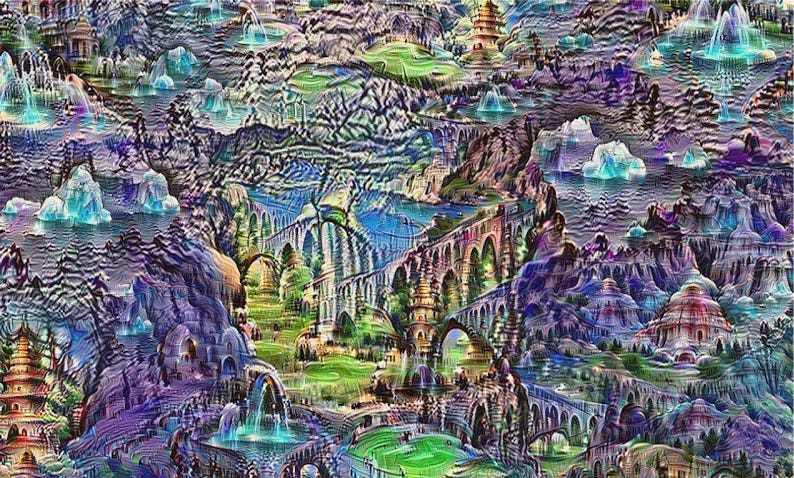Execute or think?

I am turned into a sort of machine for observing facts and grinding out conclusions. — Charles Darwin
I’ve been fascinated with technology since I was a child. My father bought me a computer when I was 10 years old after I insisted him so much. Before that, every time I had the chance I went over my friends house to play with computers. I learned to write software very young and I have always thought that knowing the art of programming was a kind of special power because you could make computers do things you had on your mind and bring your ideas to life. Things are changing fast and the once thought special ability might be transformed along with many other jobs.
Competing with the machine... or giving it a hand?
One machine can do the work of fifty ordinary men. No machine can do the work of one extraordinary man. — Elbert Hubbard
Computers since their inception rendered a great number of jobs obsolete and allowed many others to be carried out with increased efficiency, requiring a much less number of workers. The first jobs transformed were the ones related with calculations, repetitive, recording of operations, monitoring, moving of papers, copying, things that a computer could do faster and tirelessly.
Lately, with the newest advances on AI (Artificial Intelligence) I read a heated debate over the next wave of jobs that would become “obsolete”. This time the revolution would be much more extensive as computers will do things we never really imagined and we thought only reserved to humans.
Below is a chart taken from Business Insider depicting some calculations on how probably your job will be replaced by a robot in the next 20 years based on an article posted on The Economist about the Future of Jobs. *I think they use the term Robot as it’s easier to give a physical shape to our fears, but more likely it will be a cold software running on the network.
 Probability of jobs getting obsolete according to The Economist.
Probability of jobs getting obsolete according to The Economist.
In the past, the progressive introduction of machines to agriculture reduced farming employment from 90% to 2% during the course of many decades, productivity soared, freeing millions of people for other activities and leading to a change in the shape of society.
Today, AI has the potential to make this migration from the industrial & service sectors to a “new thing” much faster than ever before and causing a greater friction on society as jobs are still a fundamental part of our identity and way of living.
Governments and society in general should be discussing on how we best transition to an hyper-productive superabundance economy and a world where working could be even optional, removing all obstacles to change and embracing new technology as a tool for freedom instead of a competition for fewer jobs.
Teachers not programmers.
The human brain is an incredible pattern-matching machine. — Jeff Bezos
IA is turning into an incredible general-purpose pattern-matching machine resembling the human brain. It’s even capable of dreaming as shown by a Google Research. See this link for a full gallery.
 Neural net “dreams” — generated purely from random noise, using a network trained on places by MIT Computer Science and AI Laboratory
Neural net “dreams” — generated purely from random noise, using a network trained on places by MIT Computer Science and AI Laboratory
Computer programming will also be transformed. The job of a software developer is to give purpose to a piece of hardware by writing code with instructions on how to operate. In the process we create complex algorithms, applications and web pages that translate human requirements to a language that computers can understand, calculate and respond.
AI will not need explicit programming as it will learn about information, much like we humans do. So very probably in the future, we will be more like educators, compiling the best data available and teaching them how to do things. Purpose will not be hardcoded in the software but will emerge as a consequence of the answers the machine can handle based purely on its prior education.
Artificial Intelligence may or not be the ultimate creation of computer science, but it will surely have a great impact on our relation with our work and social identity, and even maybe it will help us getting a better understanding of our own minds.